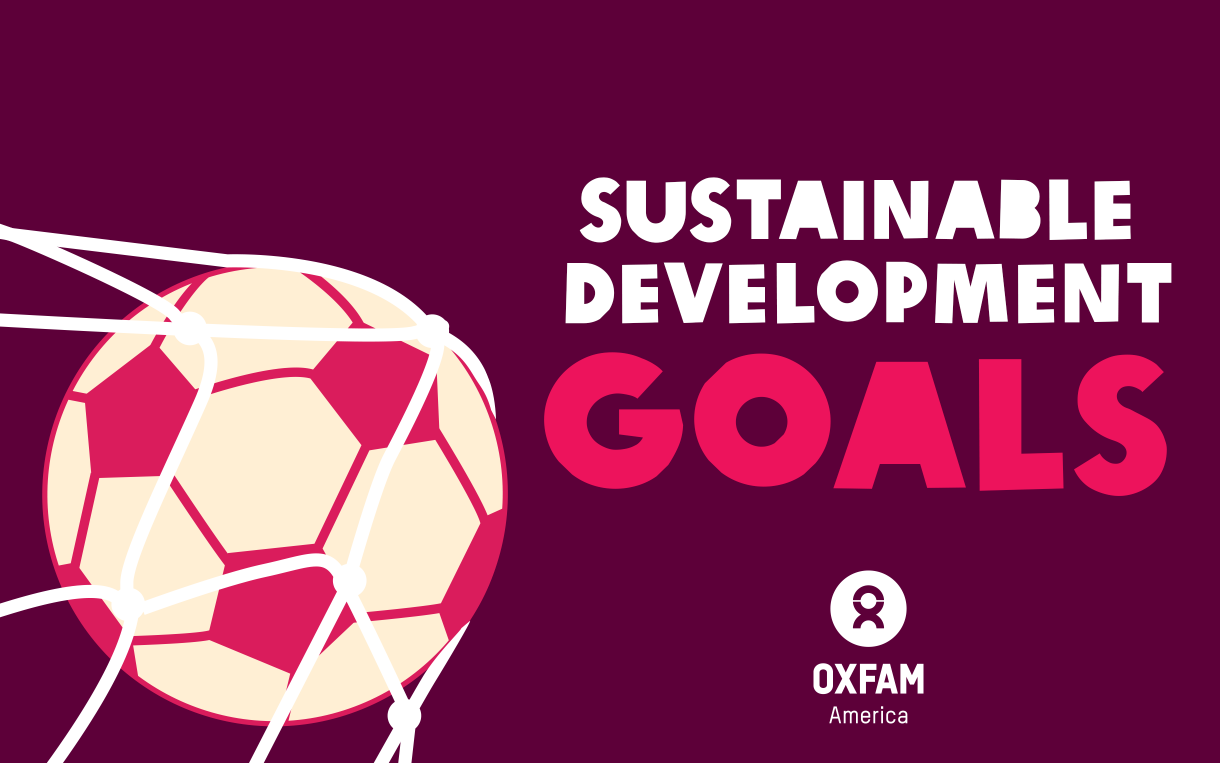8 “one-liners” you might hear during global development summits in 2015

An informal backgrounder to the MDGs and SDGs conversations to come next year.
2015 will see the end of the Millennium Development Goals (MDGs) and the launch of new Sustainable Development Goals (SDGs). If you plan to attend any of the associated conferences or meetings, here is a quick introduction to some of what you may hear next year.
1. “I was in New York in 1999”
So far I’ve met about three hundred people who claim to have been “at the very small table” that actually came up with the MDGs. Word on the street is that they were tweaked up to the last minute by key authors while crossing the streets of New York. It’s believable. The genius of the MDGs was how little process was involved in putting them together. Before anyone could utter “What about a civil society working group?“, 190 nations had signed on to the Millennium Declaration, and we were off and running.
2. “It’s a love/hate thing”
The MDGs are the single most effective tool ever created for fighting global poverty. They are a tight and compelling set of eight goals that speak to most of the basic economic and social rights violations like health, education, and extreme poverty. They helped a generation of policy makers and advocates to raise resources, focus development policy, and measure progress. So why dwell on the fact that they were also legally toothless, donor driven, aid-focused, and largely over-ambitious?
3. “Post hoc ergo propter hoc” (aka the rooster crows before sunrise, so the rooster causes the sun to rise)
The Millennium Declaration in 2000 was followed by a decade of turbo-charged growth in China, as well as some very effective anti-poverty campaigning in increasingly prosperous internationalist (OECD) economies. In that timeframe, Goal One of the MDGs was met seven years early (global extreme poverty was halved), real progress was made on many other MDG goals, and donor giving for the MDGs went through the roof. So give the MDGs some credit and use a Latin cliché to boot.
4. “The SDGs are future proofed”
The SDGs upgrade the MDGs in important ways: They are universal and apply to all seven billion of us. Moreover, they speak to tomorrow’s development challenges—largely because three constituencies won their case: (1) OECD donors and campaigners, who want to finish the work of the original eight MDGs, (2) developing economies who care more about jobs, infrastructure, energy, industrialization and economic growth (all now draft SDGs), and (3) global leaders and public goods activists who see existential threats in growing inequality, climate change and weak governance. Put those three agendas together with the three most frightening words in development politics, “inclusive consultative process,” and… We now have 17 SDGs and 169 targets.

5. “We need a bumper sticker”
The breadth and depth of the SDGs do not make for easy translation to the general or globally-engaged public. It may help that UN Secretary General just came up with six key elements for the SDGs (see a good overview of his report here) that lend themselves to this nice graphic (pictured). By the General Assembly next September, we may end up with less SDG goals and targets. I suggest why that might be important for the bumper sticker here.
6. “With all these summits, expectations are high”
Global summitry will reach a crescendo next year, making huge demands of pro-development politicians and campaigners (not to mention carbon emissions). Key events will be the July Financing For Development summit in Addis Ababa, the UN General Assembly in New York (September) where the SDGs will be finalized, Paris in December for the climate conference, and the WTO in Jakarta (December). While these increasingly choreographed moments may not provide much space for negotiation, they are going to put issues like poverty, inequality and climate change front of mind in global public policy debates, maybe for the last time in a generation.
7. “It’s not about the [aid] money”
2015 will be a tough year for aid pledging. Developed economies aren’t feeling economically confident or internationally beneficent. The BRICSAM emerging economies are forging their own development rules, and may yet emerge as SDG spoilers. The least developed countries are not yet speaking with one voice. If the SDG $17 trillion dollar price tag is going to be met, private sector investment and domestic resource mobilization will have to be repurposed, and that will only happen if they are held accountable in the right ways. (See more thoughts on financing for development here.)
8. “Where are the vanguards of accountable service delivery?”
This one-liner is my favorite (and probably the wonkiest). Here’s the point: What if a few countries use these global platforms in 2015 to reframe development commitments in their own countries? What if Afghanistan’s President Ghani, India’s Modi, Ethiopia’s HaileMariam or Denmark’s Thorning-Schmidt select the goals they most need to meet from the SDG “menu,” and then articulate those commitments not just to the world, but to their own citizens? If they use these summits to make courageous commitments to pro-poor public investments and accountable service delivery on even some of the SDGs, those countries may become the vanguards of post-2015 development rules.
In an upcoming blog series on Politics of Poverty, I look at how vanguard countries might take development leadership roles in 2015. If you want to get these blogs, or engage this discussion, let me know on Twitter @dpaulobrien.